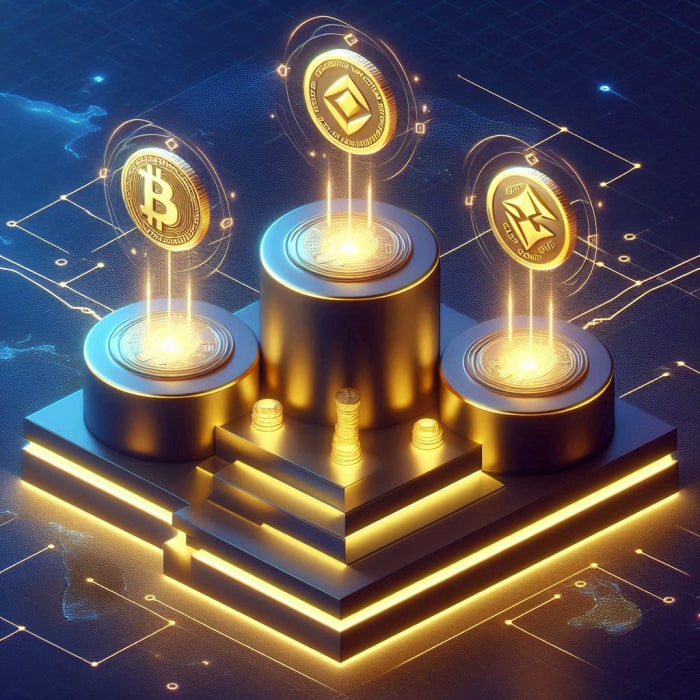Fidelity's Foray into Blockchain: A Step Towards Innovation

Fidelity Investments, one of the largest financial services companies globally, is making waves in the blockchain industry. With $5.8 trillion in assets under management (AUM), the company is recognized as a leader in investment management and financial innovation. Recently, Fidelity posted a job listing for a Chief Blockchain Engineer on the Solana job board, signaling its intent to deepen its engagement with blockchain technology and the Solana ecosystem.
What Does This Mean for Fidelity?
Fidelity’s move to hire a blockchain expert underscores the company's commitment to staying at the forefront of financial technology. This decision aligns with its history of embracing emerging trends. Over the years, Fidelity has consistently demonstrated an interest in digital assets. For example:
Fidelity Digital Assets: Launched in 2018, this division focuses on offering cryptocurrency custody and trade execution services. It was one of the first institutional players to provide such services, positioning Fidelity as a pioneer in the crypto space.
Bitcoin in 401(k) Plans: In 2022, Fidelity announced plans to allow its clients to allocate a portion of their 401(k) retirement savings to Bitcoin, demonstrating its belief in cryptocurrency as a viable asset class.
Early Blockchain Research: Fidelity began researching blockchain technology as far back as 2014 through its Fidelity Center for Applied Technology (FCAT), exploring how decentralized systems could revolutionize finance.
Why Solana?
Fidelity's choice to seek talent on the Solana job board is particularly notable. Solana is a high-performance blockchain known for its scalability, low transaction costs, and rapid processing speeds. These features make it an attractive platform for developing decentralized financial (DeFi) applications, non-fungible tokens (NFTs), and other blockchain-based solutions.
By tapping into the Solana ecosystem, Fidelity could explore:
Decentralized Finance (DeFi): Fidelity could leverage Solana's infrastructure to create DeFi solutions that provide customers with innovative ways to manage and grow their wealth.
Tokenized Assets: Blockchain allows for the tokenization of traditional assets like stocks, bonds, and real estate. Fidelity might explore this route to offer more accessible and transparent investment opportunities.
Web3 Integration: Fidelity’s interest in Solana could signal plans to explore the Web3 landscape, potentially integrating blockchain-based solutions into its existing services.
The Bigger Picture: Fidelity and Blockchain
Fidelity's embrace of blockchain technology reflects a broader trend within the financial industry. As traditional finance (TradFi) converges with decentralized finance (DeFi), institutions like Fidelity are uniquely positioned to bridge the gap, offering customers secure, compliant, and innovative services.
Key benefits of blockchain technology for financial services include:
- Transparency: Blockchain’s immutable ledger ensures every transaction is recorded and verifiable.
- Efficiency: Automated smart contracts reduce the need for intermediaries, streamlining processes and lowering costs.
- Accessibility: Blockchain opens new opportunities for underbanked populations to access financial services.
Challenges Ahead
While Fidelity’s interest in blockchain is promising, there are challenges to consider, including:
- Regulatory Scrutiny: The regulatory environment surrounding blockchain and cryptocurrencies remains uncertain. Companies like Fidelity must navigate these complexities to ensure compliance.
- Market Volatility: Cryptocurrencies and blockchain-based assets are inherently volatile, posing risks to both investors and institutions.
- Technology Integration: Incorporating blockchain into traditional systems requires significant investment in talent, infrastructure, and security.
Fidelity's job listing for a Chief Blockchain Engineer on the Solana job board marks another step forward in its blockchain journey. This move not only highlights Fidelity’s commitment to innovation but also underscores the growing importance of blockchain in shaping the future of finance.
As Fidelity continues to explore this space, it may set a benchmark for how traditional financial institutions can successfully integrate blockchain technology, bridging the gap between the old and the new. For investors, employees, and industry watchers alike, this development is an exciting glimpse into the potential future of financial services.










